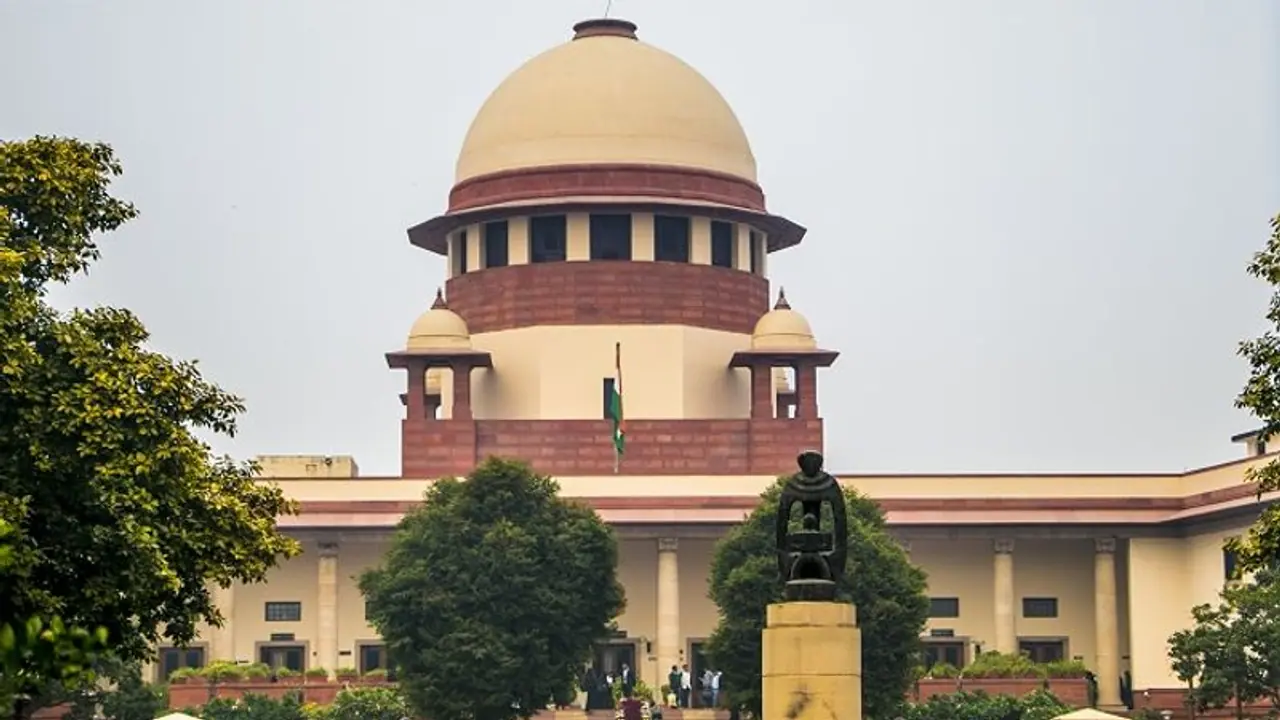Advocate Upadhyay informed the court that two justices, Justices Indira Banerjee and Hemant Gupta, had retired, necessitating the formation of a new bench. The court order was issued this morning after advocate Ashwini Upadhyay cited the petition to ban Nikah Halala and polygamy.
The Supreme Court announced the formation of a new five-judge Constitution bench to hear petitions challenging the constitutional validity of polygamy and 'nikah halala' among Muslims on Thursday.

A bench comprising Chief Justice of India DY Chandrachud and Justices Hima Kohli and J B Pardiwala was urged by lawyer Ashwini Upadhyay, who filed a PIL on the issue, that a new five-judge bench to be formed as two judges from the previous bench-Justice Indira Banerjee and Justice Hemant Gupta had retired. The Chief Justice responded, "We will form a bench."
On August 30, a five-judge bench comprising Justices Indira Banerjee, Hemant Gupta, Surya Kant, M M Sundresh, and Sudhanshu Dhulia made the National Human Rights Commission (NHRC), National Commission for Women (NCW), and National Commission for Minorities (NCM) parties to the PILs and sought their responses.
Later, Justice Banerjee and Justice Gupta retired on September 23 and October 16, respectively, necessitating the re-constitution of the bench to hear up to eight petitions against polygamy and 'nikah halala.'
In his PIL, Upadhyay requested that polygamy and 'nikah halala' be declared unconstitutional and illegal.
The Supreme Court heard the petition in July 2018 and referred it to a Constitution bench already hearing a batch of similar petitions.
The Supreme Court had issued a notice to the Centre in response to a petition filed by a woman named Farjana and had added Upadhyay's case to a batch of petitions to be heard by the Constitution bench.
The lawyer's petition sought to declare extrajudicial talaq cruelty under IPC Section 498A (husband or his relatives' cruelty to a woman). It claimed that nikah halala is a crime under IPC Section 375 (rape) and polygamy is a crime under IPC Section 494 (marrying again during the lifetime of husband or wife).
The Supreme Court, which had banned the age-old practise of instant 'triple talaq' among Sunni Muslims on August 22, 2017, had decided on March 26, 2018, to refer a batch of petitions challenging the constitutional validity of polygamy and 'nikah halala' to a larger bench.
While polygamy allows a Muslim man to have four wives, 'nikah halala' is a process in which a divorced Muslim woman must first marry another person, consummate the marriage, and then divorce the second husband if the couple remarries after a compromise.
The Supreme Court referred the petitions to a larger bench after an earlier five-judge constitution bench, in its 2017 verdict, left open the issue of polygamy and 'nikah halala' while outlawing the practice of 'triple talaq.'
It also served notices to the Ministry of Law and Justice, Minority Affairs, and the National Commission for Women (NCW).
(With inputs from PTI)
Also Read: Morbi bridge collapse: Gujarat High Court seeks report on bridges, their condition in state
Also Read: 'Tearing hurry' in clearing Arun Goel's file as Election Commissioner?: Supreme Court tells Centre
